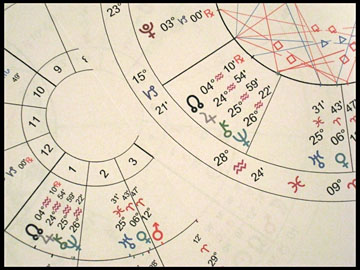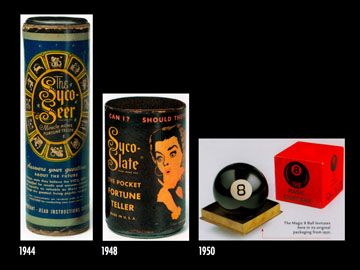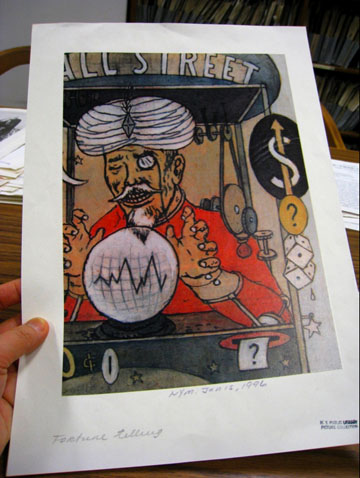Lin + Lam (Lana Lin and Lan Thao Lam) are the current fellows at the Vera List Center for Art and Politics at The New School University in New York. For their fellowship project, they are consulting people from a wide range of disciplines to see how they envision the notion of change. I interviewed them about their project, about change and how it is predicted, and the economy. A colloquium is scheduled to take place at The New School on 9/11/10 to launch their web project.
Erin Sickler: You started your project with the idea of change, which I would assume came from Obama’s political platform. Is this an exploration of that on a deeper level of what change really means?
Lana Lin: This project originated as a proposal for the Vera List Center. It has annual themes, and this year’s theme was Speculating on Change, which was partly a response to the Obama campaign. We were thinking more along the lines of the financial crisis, which was really present and alarming at the time we applied, so our proposal was more about the economic situation. Obama was being influenced by these behavioral economic researchers who were asking how people made choices about how to spend their money and whether these choices were rational or irrational. So we wanted to look from an economic and also a political perspective as to what kind of changes were possible.
ES: How do you select the people for interviews?
LL: It is pretty simple. We go to people who are identified with a certain profession and ask them how that profession defines change. It started with psychology and economics and then it moved to prophecy, prediction, and probability. We were interested in more offbeat science like astrology because we were hearing news reports during the whole financial crisis that banks at a corporate level regularly consult with financial astrologers.
ES: What have your experiences been doing these interviews? Are you looking for any particular information?
Lan Thao Lam: We are recording the interviews on video and developing a website with very short clips from the various interviews.
ES: How will it be translated to the website?
LL: The formal concept is derived from the I Ching, the classic Chinese text, which translates as The Book of Changes. The I Ching is based on 64 hexagrams, so if you were to throw your coins or yarrow sticks, you could get one of 64 combinations. Our web designer will use an algorithm so that when you visit you do a virtual toss, it will generate any of these 64 possibilities, which might consist of a video clip from one of the 12 interviews.
ES: So it is not the same question for each person?
LL: We ask everyone the same first question: how does your discipline define change? From there, it is very specific. So now we will have a psychoanalyst, economist, anthropologist/philosopher, somebody who is a financial analyst/trader, an artist who uses the I Ching . . .
LTL: Prior to the interview, we sit together and try to come up with questions specifically for them.
ES: So as a visitor to the website, you submit yourself to some randomness and then you see a video clip from an interview?
LTL: We also have different articles, audio, and images we’ve collected. There are these historic images from various prediction pamphlets—like gypsy books, magic books or dream books—that date all the way back to the 17th century. We also reference different cultural predictors, like the 8-ball in popular culture, as well as runes, divination bones, or tea leaves.
ES: Is this related to the idea of speculation in the economy?
LTL: Yeah, back to the astro-economics people. What was really intriguing was that during the crisis, they were popular guests on television news networks. And we were like, wow, there is this whole other way of managing and speculating. There is terminology in finance that is all about speculation. All your money is invested based on just this promise or prophecy. That is so foreign to me.
ES: Because you think of finance as something more analytical or numbers-based?
LTL: Or, for artists, because we literally have just the money in our wallets and in our bank account.
ES: So it’s about having enough to gamble with at that level.
LTL: Yes, and this abstract movement of wealth, like in the Madoff scheme.
LL: It is so phantom. Economics is supposed to be a science, and it is a science, but for all that figuring there is a point at which we don’t know, which will always have to do with chance. In the end, you might as well see a tarot card reader.
LTL: There is an astrologer who says she predicted the crash. The astro-economics people they are really looking at astrology, at the planet’s alignment.
LL: We went to an astrologer/psychoanalyst to do a reading for the project, based on the time, date and place of its inception, and then she did a chart for Lan Thao and me and overlaid them all.
ES: Like in astrology books where they compare your potential partners? What did she say about the attributes of the project?
LTL: This is when we don’t know how much to believe. We told the astrologer that our project is about change and according to her, the chart says the project was born in the house of change, with the time of birth corresponding to the time the email from Vera List was sent telling us we had the fellowship.
LL: The project had a lot of earth signs, meaning that it was going to be practically made; it wasn’t just going to be conceptual. But in our own individual charts, there was virtually no earth at all. It was only conceptual ideas. But for the project, she predicted it was going to be realized because together somehow we had this grounded collaboration.
ES: Maybe it is the web designer who brings the earth?
LL: We didn’t have his chart. We didn’t know who it was going to be at the time.
ES: You are aggregating all this information. What ideas does that generate?
LL: That is hard for us because we are still in process.
LTL: I think the question started for me when Obama raised the possibility of believing in something, and whether that is even possible. I am actually a huge skeptic in a way, but there is also a side of me that is really drawn to this other place, somewhere beyond what I think is possible or can get a handle on. So that is what has been really intriguing. As artists, what we do when we do research is to poke around and wonder in public. So now we get to wonder with somebody else in his or her field of expertise. It is really great.
ES: Because usually we surround ourselves with people whom more or less share the same field of knowledge?
LTL: Or the same agendas, goals, and language. The other professions, they have very different criteria. I think people are really careful about thinking through certain types of questions we ask, where I myself might not be as careful, which makes me question my preconceptions.
LL: From our interviews, what I am taking away is how each person responds or reframes the question from his/her specific field of knowledge.
ES: Because something like risk means something specific to certain people, where for us it is used as a more general term. When you cross into a different discipline, it seems you have to start out asking the most basic questions and sometimes for the people in that profession; those can be the most difficult ones to answer.
LL: We spoke to an economist, and there was a question about what qualified as a disaster from her field of research. She gave the example that if her apartment burned down, it would be a tragedy, but she would not consider it a disaster from the point of view of an economist. It would not be something that she would study from a disaster/risk perspective, because it was just a random accident, but she was talking about specific inequities within populations that cause some people to be more susceptible to disaster, specifically to natural disaster. When we were talking to the neuro-psychoanalyst, her sense of loss was about psychic loss. She was interested in how psychic loss is processed by the brain.
ES: What questions do you hope to raise for people who view the website or interact with the website?
LTL: Viewership is a fundamental question for artists and for creative projects and that is something that we, as makers, always have to ask. We have be our own audience first. We have to be engaged, to be interested. If we can replicate our own interest and engagement for the viewer, then I think we have achieved something but unlike in some other professions, there is no mathematics that can really pinpoint the success of a project.
ES: You are opening up the space for people to be curious about these things even though they might have a lot of misconceptions or stereotypes.
LL: We are interested in learning, in opening different doors. The website is an archive.







Pingback: 5 Questions with Carin Kuoni of the Vera List Center for Art and Politics | Art21 Blog